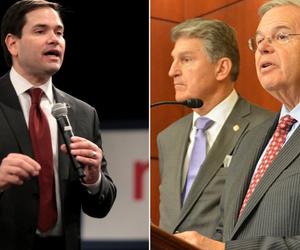Marco Rubio and Bob Menéndez seek to prohibit the US from recognizing brands expropriated by Cuba
- Submitted by: admin
- Society
- Politics and Government
- 03 / 14 / 2019

Republican senator Marco Rubio and Democrat Bob Menéndez announced Thursday a new bill that seeks to ignore Cuban trademarks in the United States, expropriated after the Revolution of Fidel Castro, Efe reported.
The objective of the legislation is to protect the rights of employers who were confiscated by the Castro government. All this, unless the original owners have explicitly given their consent.
"The expropriation of assets by the Cuban Government is, and will always be, a crime," Menendez defended in a recent statement, which, like Rubio, is of Cuban origin.
"The Cuban communist regime has benefited for 60 years from stolen property that legitimately belong to the Americans," said the Republican representative of Florida. "This bipartisan bill guarantees that US courts will not recognize, impose or otherwise validate the trademark rights of companies or assets stolen by the Cuban regime."
The Menéndez y Rubio regulations have been complemented by other legislation promoted by members of the Lower House, Debbie Wasserman-Schultz and John Rutherford.
"I am firmly committed to safeguarding the intellectual property rights of US companies to ensure that trademarks are protected against expropriation by any foreign government," Wasserman-Schultz said.
According to the news agency, the announcement of these proposals in the Senate and the House of Representatives comes after the administration of Donald Trump decided earlier this month that Cuban-Americans will be able to take litigation against more than 200 Cuban entities, for benefiting from the properties that were nationalized after the 1960s.
The news was announced on March 4 by Secretary of State, Mike Pompeo. The White House official explained that Title III of the Helms-Burton Act, which in practice allows the claims to be developed in the courts of the United States, will remain suspended for another month.
However, he stressed an exception: from March 19, US citizens may denounce those companies included in the "list of restrictions on Cuba."
The "black list" includes the entities that are "under the control or act on behalf of" the Cuban intelligence services, the Armed Forces or security forces, as previously affirmed by the State Department.
The new suspension will take effect this March and will expire on April 17, at which time the White House will evaluate whether it is necessary to extend the regulations, based on two relevant criteria: the "national interests" of the United States and the possibility of accelerating a "transition to democracy" in Cuba.
Renowned brands such as the Bacardi alcoholic beverage company -established in Bermuda since 1965- have already made public their intentions of "seeking justice" for the illegal confiscation of their properties in Cuba.
Comments